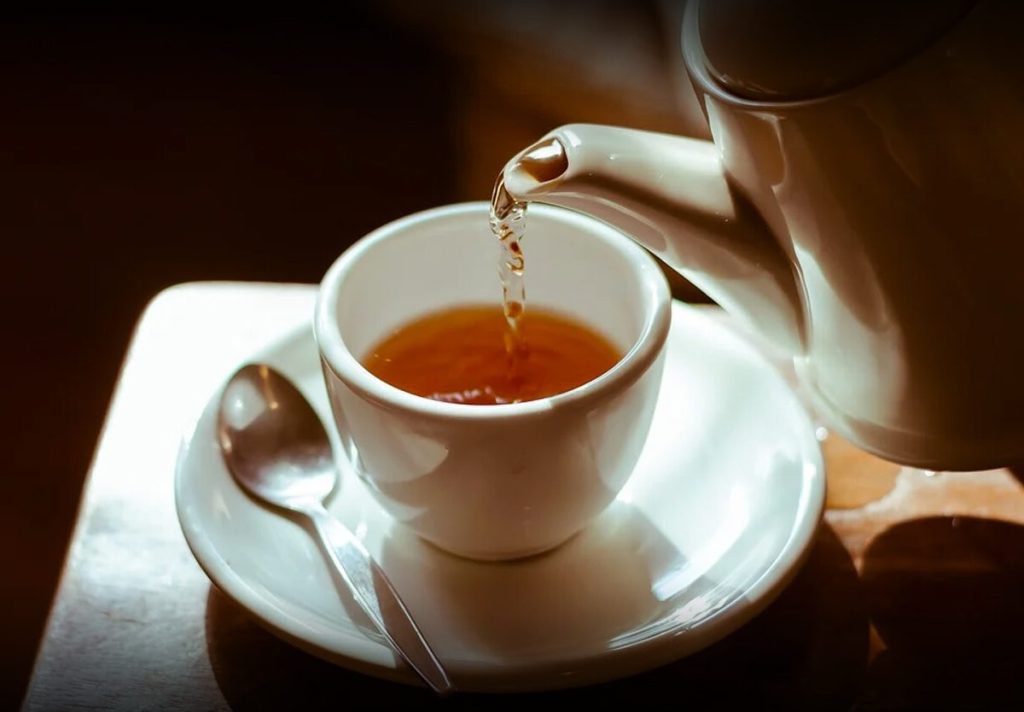Imagine a nation so enamored with a beverage that it sets aside a whole day to celebrate it. British National Tea Day on April 21st does just that, honoring a tradition steeped in history, culture, and a dash of international intrigue. From its humble beginnings in the 17th century, when the first leaves fluttered into cups, to becoming the linchpin of social gatherings and a symbol of comfort during times of strife, tea has brewed its way into the heart of British identity. This isn't just about sipping a hot drink; it's a homage to centuries of tradition, innovation, and the undeniable British knack for turning a simple tea break into an art form. Whether it's the aristocratic flair of afternoon tea or the communal spirit evoked during times of crisis, tea in Britain is more than a beverage—it's a way of life. So, how did this love affair with tea shape a nation's culture and history?
Key Takeaway
Timeline
Day Activities
-
Morning Tea Tasting: Kick off British National Tea Day with a morning filled with aromatic tea tastings. From the classic Earl Grey to the exotic Darjeeling, participants can savor the diverse flavors that have charmed Brits for centuries. It's a perfect way to wake up the senses and start the celebrations.
-
Afternoon Tea Party: No British National Tea Day would be complete without an elegant afternoon tea party. Picture tables laden with fine china, scones, clotted cream, and, of course, a selection of teas. It's a nod to the quintessential British tradition, offering a cozy way to spend the afternoon with loved ones.
-
Tea Blending Workshop: For those looking to dive deeper into the world of tea, a blending workshop offers a hands-on experience. Here, tea enthusiasts can learn the art of creating their unique blends, mixing different leaves and flavors to craft a signature brew that's all their own.
Interesting Facts
1. Tea's Arrival in Britain
Tea first hit British shores in 1657, sparking a centuries-long love affair.
2. Aristocratic Beginnings
By the 1660s, tea had charmed the British aristocracy, setting a trend that would sweep the nation.
3. Afternoon Tea Tradition
The 18th century birthed the quintessentially British tradition of afternoon tea, a ritual still cherished today.
4. Tea Rooms and Gardens
In the late 1800s, tea rooms and gardens became the social hotspots, elevating tea to a cultural staple.
5. Wartime Unity Symbol
During World War II, tea rationing symbolized national unity and resilience, deepening its cultural significance.
Why We Love This Day
-
Celebrating centuries-old tradition: British National Tea Day isn't just any old day; it's a nod to a centuries-old tradition that's as British as rain on a summer's day. Since the 17th century, tea has been warming the hearts and homes of folks across the UK. This day serves as a reminder of those cozy afternoons spent with a steaming cup in hand, surrounded by good company or enjoying a quiet moment alone. It's about honoring a simple pleasure that has stood the test of time, bringing people together in both celebration and solace.
-
A sip of cultural significance: On April 21st, we're not just sipping on a beverage; we're drinking in a piece of British history. Tea in Britain is more than just a drink; it's a cultural institution, woven into the very fabric of daily life. From the aristocratic tea parties of the 1660s to the comforting cups shared during the trials of World War II, tea has been there through thick and thin. British National Tea Day gives everyone a chance to reflect on how this humble brew has shaped social customs, inspired countless gatherings, and even played a role in historical events.
-
Unity in a cup: Let's face it, there's something special about a day that brings people together over a shared love of tea. British National Tea Day does just that, uniting tea lovers across the country and beyond. Whether it's a classic black tea, a fragrant Earl Grey, or a soothing herbal blend, everyone has their favorite. On this day, differences are set aside, and kettles are boiled as folks everywhere raise their cups in a collective toast to Britain's favorite beverage. It's a reminder that sometimes, all you need to find common ground is a good cup of tea.
Past & Future Dates
| Month | Day | Year |
|---|---|---|
| APRIL | 21 | 2022 |
| APRIL | 21 | 2023 |
| APRIL | 21 | 2024 |
| APRIL | 21 | 2025 |
| APRIL | 21 | 2026 |
| APRIL | 21 | 2027 |
| APRIL | 21 | 2028 |
FAQ
Is there a National Tea Day in the USA?
Yes, in the USA, National Tea Day is celebrated on April 21st every year, according to Days Of The Year.
How to celebrate National Tea Day?
To celebrate National Tea Day, you could host or attend an afternoon tea gathering. It's a perfect opportunity to share your love and knowledge of tea, introducing friends to its vast varieties and rich culture.
What does teatime mean in England?
Teatime, also known as Afternoon Tea or Five o'clock Tea, is a cherished tradition in England. It involves gathering with family or friends in the afternoon, typically between 3:30 and 5:00 PM, to enjoy tea alongside a selection of delicacies.
What is the British slang for tea?
In British slang, tea is often referred to as "a cuppa," which is a shortened form of the phrase "a cup of tea."
